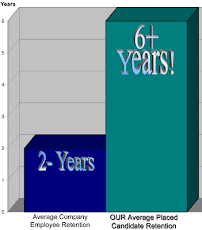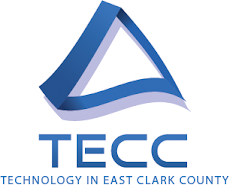Friday
VEHICLE-ELECTRIFICATION STANDARDS
IEEE STANDARDS ASSOCIATION AND SAE INTERNATIONAL AGREE TO COLLABORATE ON SMART GRID AND VEHICLE-ELECTRIFICATION STANDARDS
27 APRIL 2011 – The IEEE Standards Association (IEEE-SA) and SAE International today announced that the two organizations have signed a memorandum of understanding (MOU) to establish a strategic partnership in vehicular technology related to the Smart Grid. In doing so, IEEE-SA and SAE International are striving to create a more efficient and collaborative standards-development environment for the industry participants that they serve.
Both SAE International and IEEE-SA already have made significant contributions in standards in areas such as plug-in electric vehicles (PEVs), vehicle-to-grid (V2G) communications and power and the Smart Grid. SAE International Ground Vehicle Standards Technical Committees are leading the vehicle transportation industry in the development of standards to provide safer processes and practices for effective implementation of hybrid/electric vehicles. A total of 24 SAE International Ground Vehicle electrification committees with over 780 members have devloped 46 standards and are currently working on over 30 new standards in process.
IEEE, the world's largest professional association advancing technology for humanity, has more than 100 standards and standards in development relevant to the Smart Grid, including more than 20 named in the U.S. National Institute of Standards and Technology (NIST) Framework and Roadmap for Smart Grid Interoperability Standards. Under terms of the MOU signed by IEEE-SA and SAE International in February 2011, each organization will share its draft standards related to the Smart Grid and vehicle electricification for input from the other.
more information, go to,
http://smartgrid.ieee.org/ieee-smart-grid-news/4323-ieee-standards-association-and-sae-international-agree-to-collaborate-on-smart-grid-and-vehicle-electrification-standards
27 APRIL 2011 – The IEEE Standards Association (IEEE-SA) and SAE International today announced that the two organizations have signed a memorandum of understanding (MOU) to establish a strategic partnership in vehicular technology related to the Smart Grid. In doing so, IEEE-SA and SAE International are striving to create a more efficient and collaborative standards-development environment for the industry participants that they serve.
Both SAE International and IEEE-SA already have made significant contributions in standards in areas such as plug-in electric vehicles (PEVs), vehicle-to-grid (V2G) communications and power and the Smart Grid. SAE International Ground Vehicle Standards Technical Committees are leading the vehicle transportation industry in the development of standards to provide safer processes and practices for effective implementation of hybrid/electric vehicles. A total of 24 SAE International Ground Vehicle electrification committees with over 780 members have devloped 46 standards and are currently working on over 30 new standards in process.
IEEE, the world's largest professional association advancing technology for humanity, has more than 100 standards and standards in development relevant to the Smart Grid, including more than 20 named in the U.S. National Institute of Standards and Technology (NIST) Framework and Roadmap for Smart Grid Interoperability Standards. Under terms of the MOU signed by IEEE-SA and SAE International in February 2011, each organization will share its draft standards related to the Smart Grid and vehicle electricification for input from the other.
more information, go to,
http://smartgrid.ieee.org/ieee-smart-grid-news/4323-ieee-standards-association-and-sae-international-agree-to-collaborate-on-smart-grid-and-vehicle-electrification-standards
'Who Killed The Electric Car?' Sequel Premieres Tonight (Video)
Who Killed the Electric?" seemingly stung General Motors enough that the company unveiled the Chevrolet Volt concept in 2007 and then, startled by its popularity, decided to put the range-extended electric car into limited production.
Now, there's a sequel, appropriately titled "Revenge of the Electric Car," and it premieres tonight as part of Robert De Niro's Tribeca Film Festival in New York City."
see the trailer at the link http://www.greencarreports.com/blog/1058848_who-killed-the-electric-car-sequel-premieres-tonight-video
Now, there's a sequel, appropriately titled "Revenge of the Electric Car," and it premieres tonight as part of Robert De Niro's Tribeca Film Festival in New York City."
see the trailer at the link http://www.greencarreports.com/blog/1058848_who-killed-the-electric-car-sequel-premieres-tonight-video
Wednesday
Executive Searches are on the Rise.
In an article published in the Wall street Journal this week by Joann S. Lublin for Wall Street Journal www.wsj.com She had some very specific discoveries…...
“As the economic recovery gathers speed, big U.S. businesses are coming out of their crouch and hunting for fresh management talent that can help them grow faster. The number of North American executive searches rose by 27% last year after plunging 24% in 2009, according to the Association of Executive Search Consultants.
The hottest prospects are team players who created value at big companies that held their own during the downturn, recruiters said. Star executives innovate and move quickly.
Strategies needed "to steer toward new growth are different than in the past," said John Wood, head of the global CEO practice for executive search firm Heidrick & Struggles International Inc.
With the fastest growth happening overseas, many boards are looking for executives with a global view and work experience in several foreign countries, said Karena Strella, U.S. co-leader for another leading search firm.”
At PermanTech we are experiencing very similar issues within our searches. Management and executive level searches are on the rise in Electric Vehicles and Electronics. A track record of past successes is extremely important as hiring authorities are demanding talent that can hit the ground running. We’ve seen talent still a little skittish about relocating; the uncertainty of company stabilities have many talented professionals still a reluctant to make a move and several are turning down better paying, more challenging job offers due to that fear of uncertainty. Those that do step in tend to hedge their bets by refraining from selling their homes right away, negotiating employer paid temporary housing for six month or other strategies.
“As the economic recovery gathers speed, big U.S. businesses are coming out of their crouch and hunting for fresh management talent that can help them grow faster. The number of North American executive searches rose by 27% last year after plunging 24% in 2009, according to the Association of Executive Search Consultants.
The hottest prospects are team players who created value at big companies that held their own during the downturn, recruiters said. Star executives innovate and move quickly.
Strategies needed "to steer toward new growth are different than in the past," said John Wood, head of the global CEO practice for executive search firm Heidrick & Struggles International Inc.
With the fastest growth happening overseas, many boards are looking for executives with a global view and work experience in several foreign countries, said Karena Strella, U.S. co-leader for another leading search firm.”
At PermanTech we are experiencing very similar issues within our searches. Management and executive level searches are on the rise in Electric Vehicles and Electronics. A track record of past successes is extremely important as hiring authorities are demanding talent that can hit the ground running. We’ve seen talent still a little skittish about relocating; the uncertainty of company stabilities have many talented professionals still a reluctant to make a move and several are turning down better paying, more challenging job offers due to that fear of uncertainty. Those that do step in tend to hedge their bets by refraining from selling their homes right away, negotiating employer paid temporary housing for six month or other strategies.
How Do Your Employees Really Feel about Working for You?

Published in IEEE Todays Engineer
-Gary Perman
Many employers are feeling the double-edged sword of economic recovery. One the one hand, there’s the exhilaration that the recession may be ending; on the other, the stress of depleted inventories and resources, and the constant challenge of revenue growth. This plurality of thought is changing not just the landscape of how management views its continued corporate growth, but its relationship with its employees as well.
Recent federal incentives have seeded many companies in markets such as wind, solar, energy, automotive and the electronics industries to spur job creation. I have seen a flurry of industry growth and employee optimism. Unfortunately, federal incentive funding is also “running out,” exemplified by the Solar Panel incentives in Colorado, resulting in the closure of branch offices, and fueling the merger/acquisition of other companies. Venture capital remains tough to come by in the United States, and further contraction of venture firms is expected domestically so many entrepreneurs are reaching out to financiers in places like Poland, Brazil, Israel, India and China. to invest in America’s emerging technologies. Adding to the confusion is the big question: “Should we, as companies, grow, expand, or stay put? If our crystal ball were firmly in place, the answer would be easy, but accurately reading the pulse of industry in the next few years is beyond the scope of reality.
As managers focusing on this conundrum, you may be ignoring an even deeper concern—the employees and team spirit that drive your success. These are the very individuals who help your company grow and prosper, yet, as the economy slowly recovers, may, at this very moment, are thinking about leaving you.
Despite the recession, most employers have had a very difficult time recruiting and hiring away highly-qualified, technically-proficient people. No amount of advertising would entice them away from their current jobs because they fear any employment change. They are also not reading the very publications that would motivate them to seek you out, even though their unhappiness grows. The end result is a tremendous number of unfulfilled high-tech jobs, fueling the belief that the United States is plagued with a significant engineering shortage.
That perception is changing, though, as industry begins its slow but steady recovery, and consumer confidence grows. With an emerging light appearing at the end of this hiring abyss, and employees start to feel a bit more comfortable peeking out from behind their cubicles, this trickle will soon become a stream.
read the rest at http://www.todaysengineer.org/2011/Apr/employee-retention.asp
Subscribe to:
Comments (Atom)













